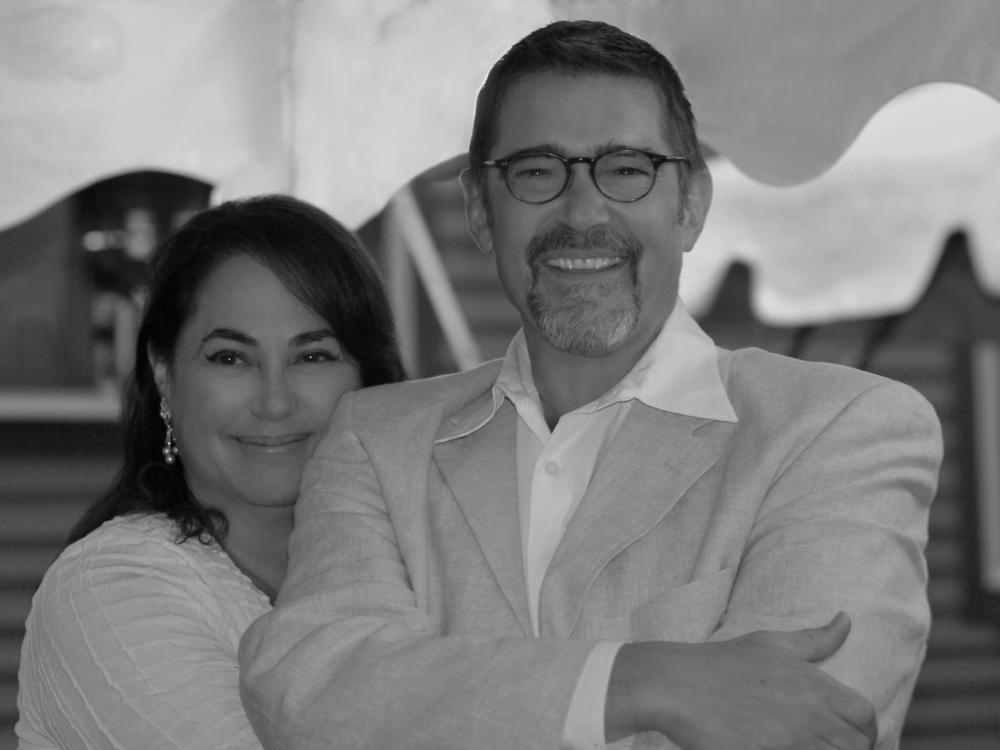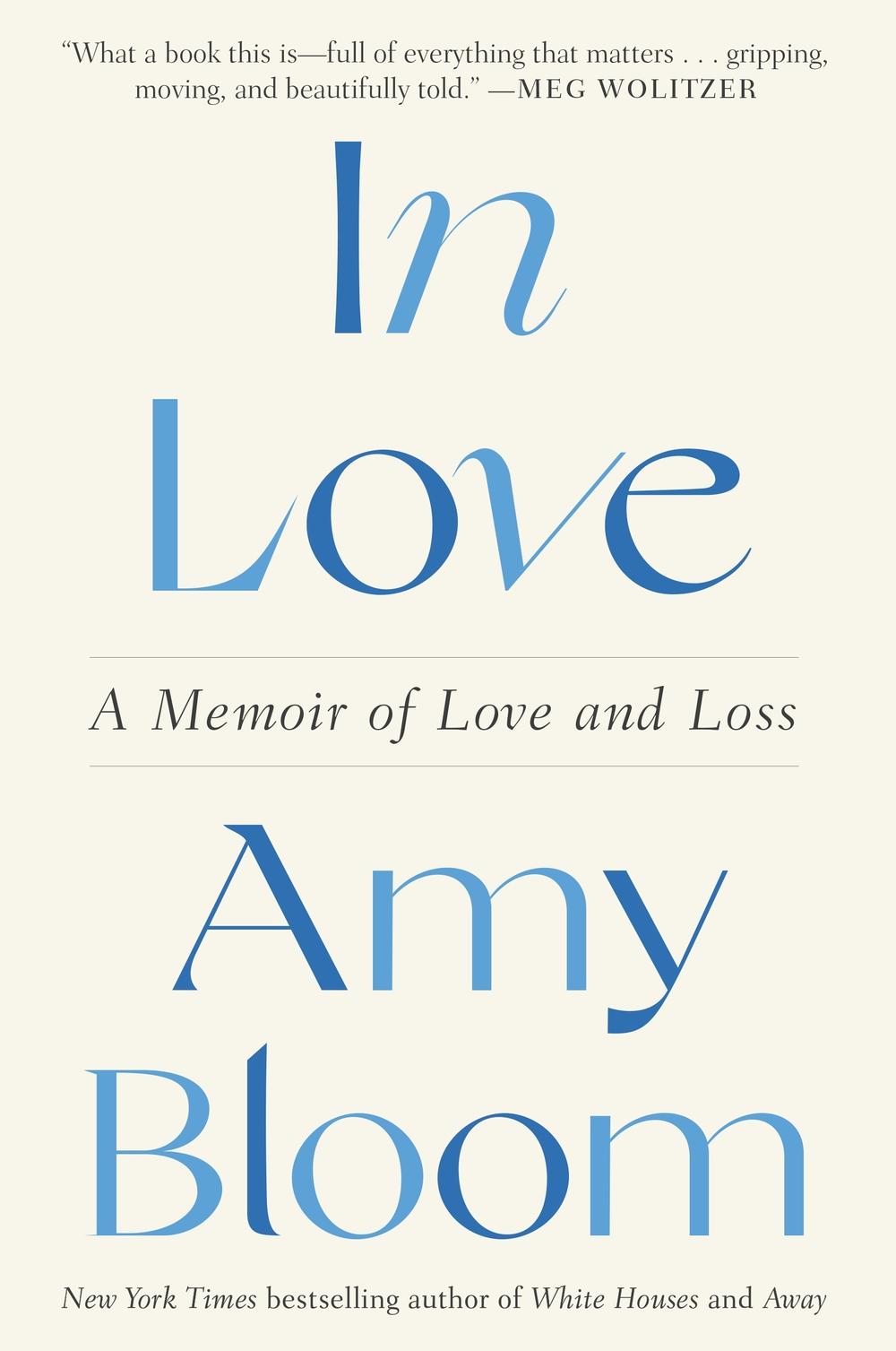Section Branding
Header Content
After an Alzheimer's diagnosis, her husband asked for help to die with dignity
Primary Content
Shortly after he was diagnosed with Alzheimer's disease in 2019, architect Brian Ameche, then in his mid-60s, told his wife, novelist Amy Bloom, that he wanted to end life on his own terms, before the disease robbed him of everything.
Bloom was reluctant, but Ameche was resolute — and he needed her help.
"He had strong feelings about people's rights to agency and autonomy," Bloom says. "He said, 'I don't want to argue about this. This is what I need to do.'"
Bloom and Ameche had met later in life, and married in 2007. Bloom describes her husband as a man of action, whose fundamental principle was: "If there's going to be a fight, throw the first punch."
But as his Alzheimer's progressed, Bloom watched as her husband forgot the names of his grandchildren, and got lost in the neighborhood grocery store. "It was clear that the disease was taking its toll," she says.
At Ameche's insistence, Bloom began researching options for assisted suicide. Though a handful of states in the U.S. have so-called "right to die" laws, Ameche did not fit their strict qualifications. Instead, Bloom and Ameche wound up going to Zurich, where after a careful screening process, Ameche succeeded in terminating his life in late January 2020.
"I'm sure that there were a number of circumstances, which, had they been different, he would have liked to have stayed longer," Bloom says. "But he also completely understood that there was a window of cognitive functioning and that he had to make this decision and act on it within that window. And that was very clear to him."
Bloom's new memoir, In Love, is centered around her husband's diagnosis and her quest to help him end his life in the manner he chose. The book also chronicles their life together and how it was changed by Alzheimer's.
Interview highlights
On why Brian's case fell outside the purview of right-to-die laws that exist in certain U.S. states
Nobody with dementia would qualify in any of those states because a terminal disease diagnosis is required, and "terminal" means that you will be dead within the next six months. Period. It doesn't mean you have a terminal disease, you might be dead in a couple of years, you might be dead in a year and a half – six months. You have to find a doctor who will say that you will be dead in six months. There are not that many doctors who are prepared to say this is an absolute fact. And you have to be able to take the medication, the lethal dosage yourself, which for somebody with Alzheimer's might or might not be a problem, but for somebody with some other kind of disease, like ALS, would be a genuine obstacle to overcome.
You certainly have to be able to display judgment and cognitive functioning and discernment, which I support entirely. But it is the combination of the timing — the terminal diagnosis and the cognitive function — that makes this such a thread-the-eye-of-a-needle process for so many people.
On the application process for medically assisted suicide in Zurich
It was not easy. You become a member of the organization, of Dignitas, as a supporting member. There's that first application in which there is not a big screening process. You sort of say, "Oh, I would like to support this endeavor," and you become a member and then you begin the process. They require an autobiography by the person who's making the application. They require medical records and medical support, if you are engaged in the medical process, which, of course, most people who would be applying to Dignitas would have a medical professional, if not several, in their lives. You again have to sort of demonstrate that you are, as we used to say, "of sound mind." Then there are some telephone interviews and then there is a provisional go-ahead or a no-go. If you get the provisional go-ahead, when you go to Zurich, you have two more interviews with physicians to continue to check in with the person making the application. That's the process.
On what the final days were like
I think most of the tears were on my part. So for me, the whole trip was a long, tearful goodbye. I think for him, he had made up his mind. He knew what he was going to do. He was focused on what he needed to do and his own process about that, his own process of departure. We held hands a lot, and we took a lot of naps and we walked around the city together. We didn't talk much about what was coming and we didn't talk a lot about our life together and how it had brought us to this and what would be next. He did say, "I hate to leave so soon." He also said, "I am not afraid."
On how the doctors repeatedly told him he could change his mind at any time
It was reassuring to me. I think that was something that met with Brian's approval. He thought it was the right thing for them to ask repeatedly. He actually said that at one point. He said, "I appreciate your asking. I will be giving you the same answer every time." I don't know that there are a lot of people who change their minds once they are in Zurich, although I'm sure that there are some. And, of course, there are many people who apply to the organization as sort of an insurance policy and never follow through.
On what the final moments were like, once he took the poison
I am cursed with a pretty expressive face, which so far I have been unable to overcome. But I knew what he saw on my face because I knew what I felt and what he saw was love. And we held hands and we kissed and he fell into a light sleep and then a deeper sleep. It was a very, very peaceful process. ...
I did not want him to see fear in my face, I also didn't feel fear at that moment. I knew that this is what he wanted, and he was at peace with it, and he was glad to be able to accomplish what he had wanted to accomplish. Not happy, but glad and relieved and I think what he saw on my face was that I was there for him.
Therese Madden and Seth Kelley produced and edited the audio of this interview. Bridget Bentz and Molly Seavy-Nesper adapted it for the web.
Copyright 2022 Fresh Air. To see more, visit Fresh Air.


